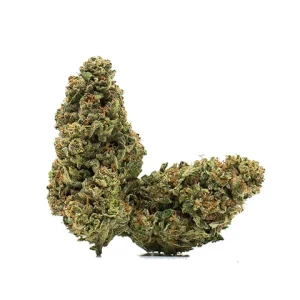The legal landscape surrounding THCA tetrahydrocannabinolic acid hemp flower is evolving rapidly as regulations and market dynamics shift in response to growing consumer interest and scientific advancements. Understanding the current regulations and potential future trends is crucial for stakeholders in the hemp industry, from growers and processors to consumers and policymakers.

Current Regulations
As of 2024, the legality of THCA hemp flower is largely influenced by its classification under federal and state laws in the United States. The 2018 Farm Bill marked a significant milestone by legalizing hemp and hemp-derived products, provided that they contain less than 0.3% THC tetrahydrocannabinol on a dry weight basis. This legislation primarily focused on THC, the psychoactive component of cannabis, rather than THCA, its non-psychoactive precursor. THCA is found in raw cannabis plants and is converted to THC through decarboxylation, a process triggered by heat. Consequently, THCA hemp flower, which contains high levels of THCA but minimal THC, occupies a unique legal gray area. Although THCA itself is not explicitly regulated, hemp-derived products containing less than 0.3% THC are generally considered legal under federal law. However, the regulatory landscape can vary significantly from state to state. Some states have adopted their own regulations that address THCA more explicitly. For example, certain states have introduced legislation to regulate exotic thca flower products similarly to THC-containing products, potentially imposing restrictions on sales or use. Meanwhile, other states have embraced a more permissive stance, allowing THCA hemp flower to be sold with minimal restrictions.
Future Trends
Looking ahead, several trends are likely to shape the future of THCA hemp flower regulation. Firstly, increasing research into THCA’s properties and potential therapeutic benefits could influence regulatory frameworks. As scientific understanding of THCA advances, there may be a push for more precise regulations that differentiate between THCA and THC based on their respective effects and uses. Secondly, the growing market for hemp-derived products is prompting more robust regulatory scrutiny. As consumer demand for THCA hemp flower rises, regulators may implement more comprehensive guidelines to ensure product safety and consistency. This could involve stricter testing requirements to verify THCA and THC levels, and clear labeling standards to inform consumers.
Additionally, the ongoing debate about the broader legalization of cannabis at the federal level could have significant implications for THCA hemp flower. If federal cannabis legalization progresses, the regulatory framework might shift, potentially simplifying the legal status of THCA and other cannabinoids. This could lead to a more unified approach to cannabis regulation across states, reducing the complexity of compliance for businesses and consumers. the legal landscape of THCA hemp flower is characterized by its current regulatory ambiguity and the potential for significant changes. As research, market dynamics, and federal policies evolve, stakeholders should stay informed about regulatory developments to navigate this complex and changing environment effectively.
